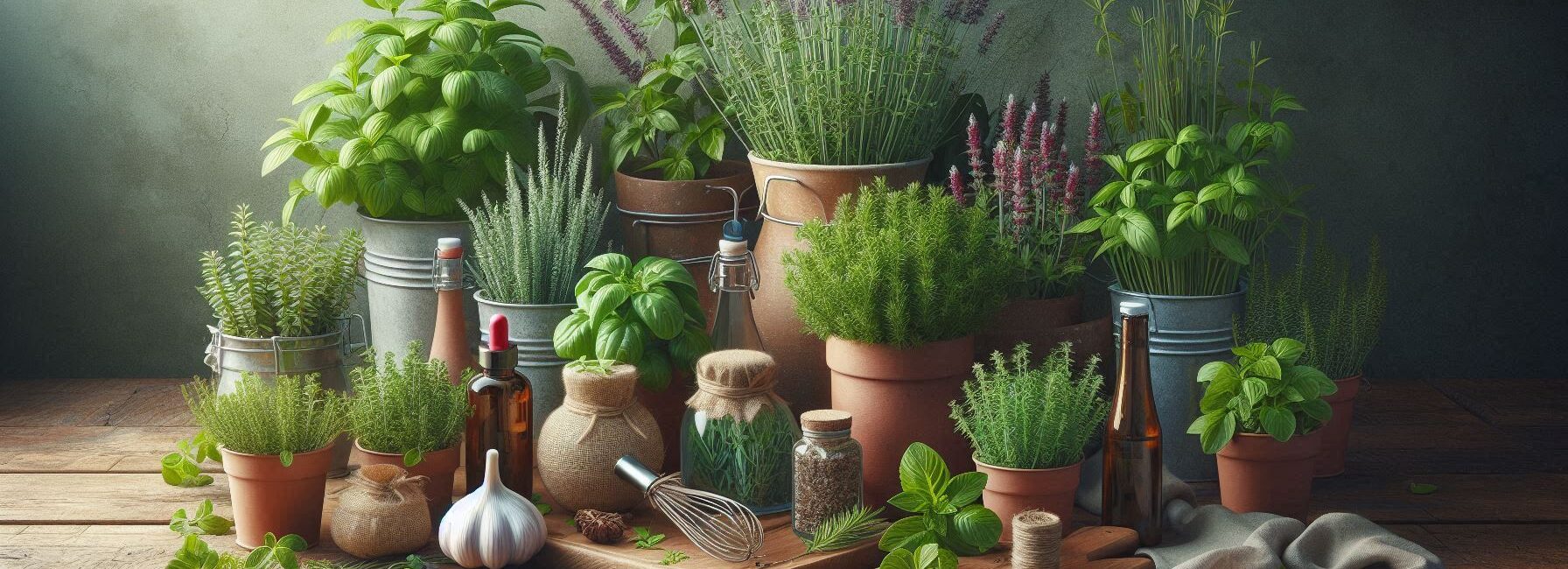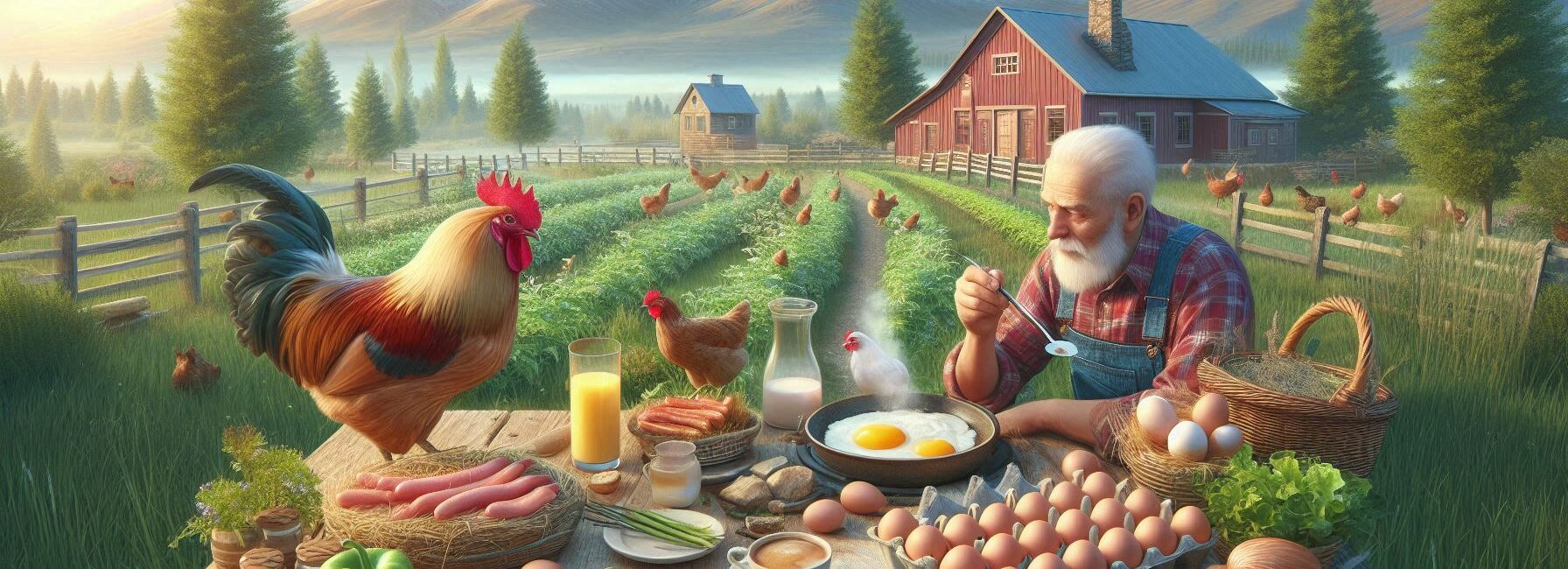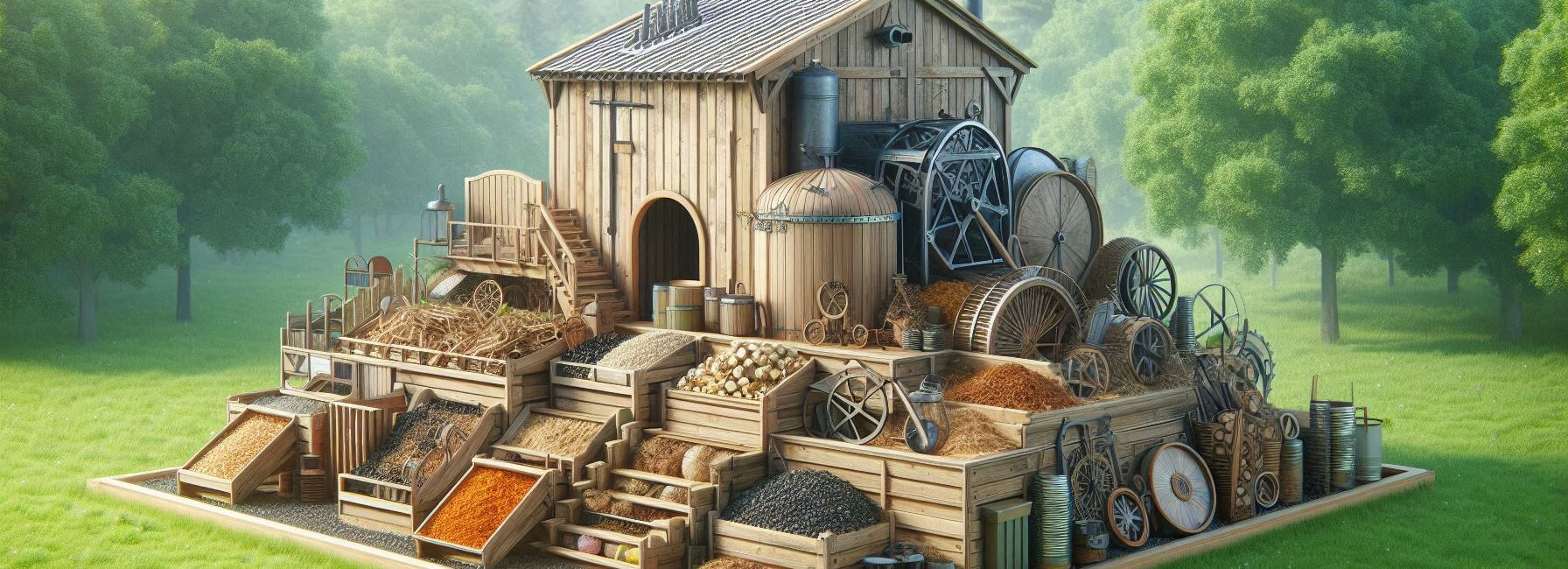Please Note: This post may contain affiliate links. If you click one of them, we may receive a commission at no extra cost to you. As an Amazon Associate, I earn from qualifying purchases.
Last Updated on November 2, 2025 by Kevin Collier

Top Takeaways and Key Concepts
– Begin with a realistic homesteading plan tailored to your property.
– Focus on essential skills like gardening and food preservation.
– Start small; gradually expand your projects over time.
– Use vertical gardening techniques to maximize limited space.
– Learn local regulations for homesteading practices and livestock.
So, you’re jumping into homesteading? How exciting! You’re stepping into a world of fresh veggies, cheerful chickens, and maybe a raccoon or two—who think they’re movie stars auditioning for “America’s Next Top Pest.” Seriously, those little guys can be sneaky, right?
Before you start imagining your dreamy homestead, let’s break it down. Even if your space is smaller than your neighbor's dog park, you can make it work. It’s all about creativity and a little planning.
First, think about what you love to eat. Got a favorite vegetable? Start there! Even a few pots on a balcony can grow tasty tomatoes or crunchy peppers. You can also use containers to save space. They can be colorful and fun. Plus, they make watering easier.
Chickens? Yes, they can be part of your homesteading dream, even in small backyards! A coop doesn’t need to be massive. A couple of happy hens can give you fresh eggs every day. And you’ll get those cute little clucks when they see you.
If you’re into fruits, think about berries or dwarf fruit trees. They can fit almost anywhere. Imagine picking strawberries for breakfast. Yum!
You might also try composting. It's a terrific method to feed your plants and cut down on trash. A little bin may turn waste from the kitchen into rich, happy soil. It's like feeding your plants a tasty snack.
Enjoy the small things that come with homesteading. That raccoon might take a snack every now and then. It will provide you a funny anecdote to tell your buddies. Keep in mind that every step you take gets you closer to the self-sufficient paradise you see in your mind.
Jump in, have fun, and enjoy the ride. Even if it's not a huge farm, you're making something wonderful. Big dreams may fit in little places!
*** Shop for Survival Gear - Tools - Kits ***
Survival Gear - Bags and Backpacks - Knives - Boots/Footwear - Communication
Outdoor Cooking - Gloves - Hydration - Dry Boxes - Water Filtration Systems
Tents - Sleeping Bags - First Aid Kits - Multi-Tools - Flashlights - Fire Starters
Navigation - Survival Food - Night Vision - Headlamps - Stun Guns - Binoculars
Assessing Your Space
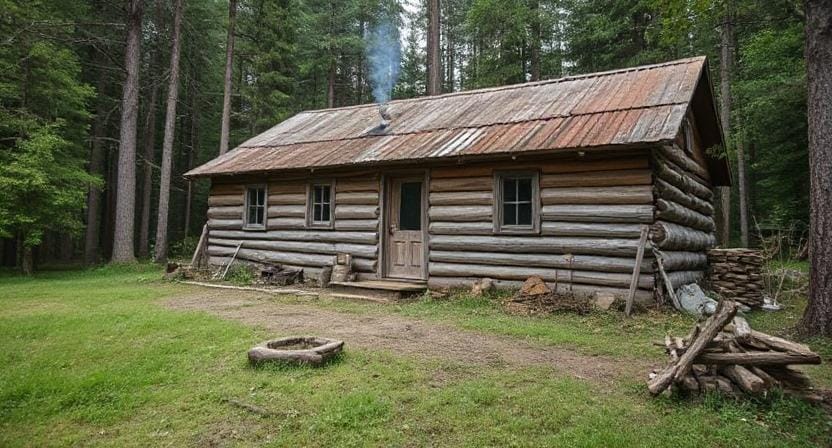
Look at your property closely. Is it a little backyard or a balcony on an apartment? There are still ways to get started in either case.
By the way, even the smallest areas may become useful gardens or comfortable chicken coops if you know how to do it!
Let's have a look… Congratulations if you have a patch of dirt that gets sun for most of the day! You might have a garden on your hands.
Think about raised beds. They're like little hotels for plants where they can thrive without having to fight with weeds. Also, they help keep things neat, so you don't have to dig through dirt like you're looking for buried treasure (which would be amazing).
Container gardening is great if you have limited outside area or are working with concrete. Get some pots and fill them with dirt and seeds.
Basil and cilantro are two plants that do well in pots. And believe me, nothing beats fresh herbs cut directly from your kitchen window.
Making Plans for Your Garden
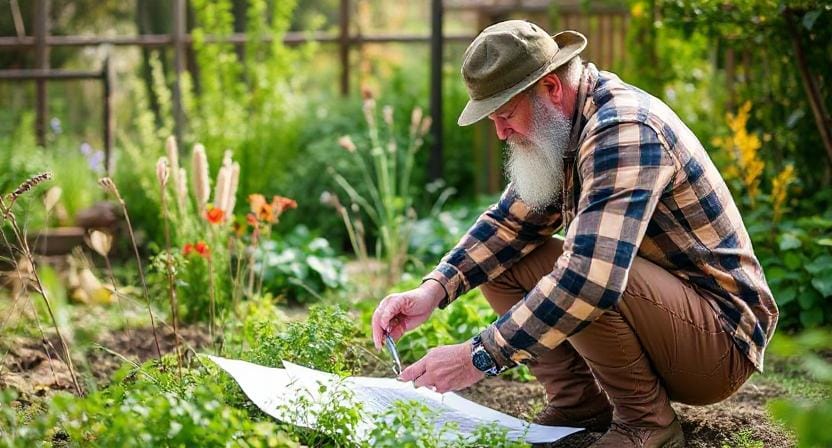
The fun part is now: choose what to plant! I think it's important to pick crops that work well in your climate and that you want to eat.
Do you like salads? Then lettuce should absolutely be on the list! Or maybe you like salsa better? You might end up loving tomatoes and peppers.
It's interesting that companion planting can also help you make the most of small spaces. For instance, putting marigolds next to veggies helps keep bugs away and make your garden seem nicer at the same time, like nature's own pest control team!
And to be honest? It is good to know that flowers are keeping those annoying pests away instead of pesticides.
Don't forget about growing things at the right time of year! Some vegetables do well in the cooler months, while others do well in the heat of summer. You may eat delicious food all year long without being too stressed out if you keep track of what grows when. Who wants stress when you're trying to enjoy life on your homestead?
Keeping Chickens (or Other Animals)
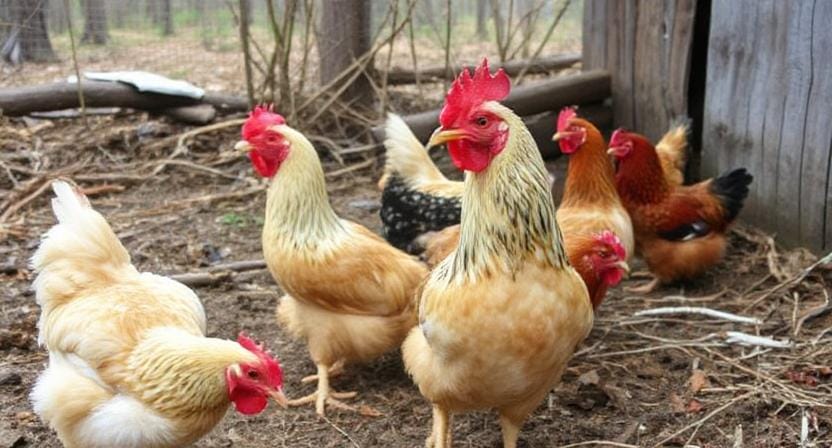
If you have room for hens (or even ducks!), you might want to think about adding them to your homesteading journey. These birds are like hairy comedians putting on their own show because they scratch around hunting for food and lay eggs.
If you're new to raising chickens, I suggest starting with three or four hens. This provides you enough eggs without making you feel overwhelmed or turning into a chicken hoarder who needs to explain why there are 50 birds running around at dinner parties!
Speaking of that, making a small coop doesn't have to be hard; just make sure it's safe from raccoons and other predators and gives the chickens a place to stay out of the rain and wind.
A simple design will work just fine; these women don't care about where they stay as long as they feel protected.
And don't forget about feeding! Chickens eat anything, and they're great at recycling. They'll cheerfully eat kitchen scraps that would otherwise go in the trash. Imagine them as composters that are good for the environment and wear feathers!
Keeping Your Harvest

After you've grown all those tasty vegetables and collected eggs from happy chickens, what's next? If you want to enjoy the summer's abundance all winter long, when fresh produce is hard to find and pricey, preserving is the way to go.
At first, canning might seem scary (who wants boiling water spraying everywhere?), but once you get the hang of it, it's actually very gratifying!
Imagine taking out jars of homemade tomato sauce or pickles on cold winter nights and thinking of the beautiful days you spent working in your garden.
Another easy solution is to freeze them. Just wash and chop them up, then put them in freezer bags for later use in soups or stir-fries when you really want them during snowstorms!
And to be honest? Giving away extra fruits and vegetables to your neighbors is a great way to build community. You might end up exchanging tomatoes for handmade cookies or anything else people trade these days (I'm still waiting for someone to give me Wi-Fi access).
Taking on DIY Projects
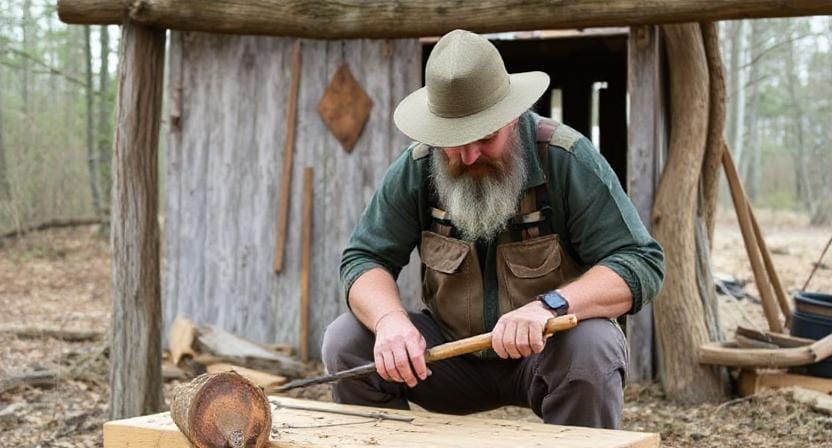
Homesteading isn't just about growing food; it's also a chance to be creative with DIY projects! I think that every little effort, like making birdhouses out of scrap wood or building raised beds out of salvaged wood, adds charm and saves money.
You could also want to make compost bins. This will turn kitchen trash into nutrient-rich soil amendments and teach you important lessons about how to be more environmentally friendly. It's strange how enjoyable it is to watch worms do their thing; it's like having little servants from nature perform all the dirty work!
But don't be afraid to learn how to make things like soap or candles. Your friends will be impressed when they find out that you prepared gifts by hand in your home lab!
Getting to Know the Community
Lastly, and maybe most crucially, you should network with other homesteaders in your area (or online). It's nice to know that other people have the same aims as you, even when they tell stories about how they beat hard weeds or unexpected animals that got into their gardens.
Join a gardening club or find a social media group just for small-scale farming. It’s like having a bunch of friends who get what you’re doing. The encouragement you get will lift your spirits way more than coffee ever could! Seriously, it’s like having a cheer squad.
Talking with others makes everything easier. Everyone has stories to share. We all mess up sometimes—maybe your tomatoes didn’t grow or a chicken wouldn’t stop wandering. It happens! Laughing about our little mishaps is part of the fun. You’ll learn faster when someone shares their “oops” moments.
Think about the joy of swapping tips. Someone might have the perfect way to keep pesky bugs away. Another friend might share a cool recipe for using up those extra veggies you’ve grown. It’s all about teamwork!
Plus, you feel less alone. Homesteading can feel a bit wild at times, right? Connecting with others takes away some of that overwhelm. You’ll be able to ask questions or just chat about the best way to grow kale—or why those raccoons keep sneaking in.
So, dive into those clubs. Share your journey. The friends you make will make this whole thing even brighter. You’re not just growing plants; you’re building a community. And that’s pretty awesome!
Frequently Asked Questions
Can you homestead in a small backyard?
Yes, many homesteading practices work in small yards, patios, and balconies using raised beds or containers.
Which skills should beginners learn first?
Gardening, composting, and basic food preservation are great starting points because they directly support self-sufficiency.
How do I choose what crops to grow first?
Start with foods you actually enjoy eating and select plants that grow well in your local climate and sunlight conditions.
Can you raise chickens on a small property?
Yes, a small flock of hens can fit in a modest coop as long as space requirements and local regulations are respected.
How can I maximize limited growing space?
Vertical gardening, trellising, hanging planters, and stacking containers allow you to grow more in compact areas.
Is food preservation necessary for small homesteads?
Preserving harvests helps you store surplus produce, reduce waste, and enjoy garden food year-round.
Should I connect with other homesteaders?
Yes, networking provides support, new ideas, troubleshooting help, and encouragement during challenges.
Suggested Resources:
The Ultimate Guide to Homesteading
https://www.homestead.org/the-ultimate-guide-to-homesteading/
Starting Your Own Homestead
https://www.theprairiehomestead.com/start-your-own-homestead/
Backyard Chicken Care
https://www.backyardchickens.com/raising-chickens/

Kevin Collier is a seasoned survivalist and expert in prepping and homesteading, contributing to WiseSurvive.com. With a deep-rooted passion for self-sufficiency and outdoor survival skills, Kevin shares practical advice, strategies, and resources to help individuals prepare for any challenge. His informative articles cover a range of topics, from essential survival techniques to sustainable living practices, empowering readers to thrive in any situation. Whether you're a novice or a seasoned prepper, Kevin's insights will inspire you to take charge of your readiness and build resilience for the future.


